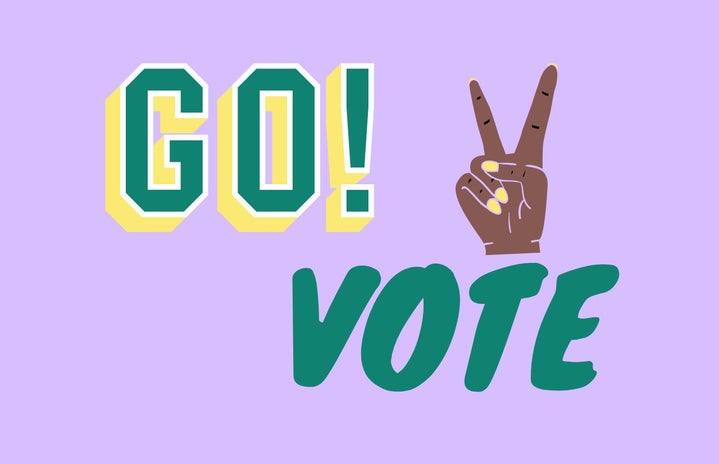“Remember, for your progress, for your welfare, your happiness, never fail to cast your vote in the elections.”
Dr. A.P.J Abdul Kalam. former President of India
India, a country that prides itself on its democracy, is conducting one of the largest democratic exercises – voting. But it’s not just India. 2024 is set to be a mega-election year for the world, with almost half of the world’s population (around 4 billion) set to cast their votes. Close to a billion of them reside in India alone. India’s General Elections or the 18th Lok Sabha Elections will be held in seven phases starting from April 19, 2024, to June 1, 2024. Due to the event’s massive media coverage worldwide, its significance is a known fact. But why do people vote? Why is this democratic exercise so important? In simple terms – every vote matters!
India’s electoral system
India is the world’s largest democratic nation, conducting elections as per the Indian Constitution. This is supplemented by the laws made by the Parliament. The major laws include the Representation of the People Act, 1950, which deals with the preparation and revision of electoral rolls, and the Representation of the People Act, 1951, which covers all aspects concerning the conduct of elections and post-election disputes.
In situations where the enacted laws are silenced or deemed inadequate, the Election Commission of India (ECI), an independent body that ensures free and fair conduction of elections, has the power to act appropriately. When it comes to voting, India follows the First Past the Post System (FPTP). It is based on a simple majority system where the candidate with the highest number of votes in a constituency wins the election.
Due to India’s vast population and diversity, elections are held in phases. In the first week, the Election Commission of India announces election dates and enforces the Model Code of Conduct (MCC). The MCC prohibits hate speech, vote-buying, and pre-election spending, etc. Subsequently, the Commission formally notifies the elections, and candidates submit their nomination papers for the first phase. Campaigning officially commences in the fourth week, followed by the polling process. Finally, after the completion of all phases, the votes are tallied. For the ongoing General Elections, results are scheduled to be announced on June 4, 2024.
The ongoing elections in India span across 28 states and eight Union Territories (UTs), overseen by the ECI. With 968 million eligible voters, including 497 million males, 471 million females, and 197 million young voters, the electoral process is extensive. Notably, there are 18 million first-time voters, 8.2 million voters over 65, and 0.2 million voters over 100 years old. These voters will elect 543 representatives to the Lok Sabha (the lower house of the Parliament), amidst the presence of six national parties, over 52 state parties, and more than 2,301 unrecognized parties. Leading the National Democratic Alliance (NDA), the Bharatiya Janta Party (BJP) has been in power since 2014, while the Indian National Congress (INC) has been the largest opposition party. Other significant players include regional parties like Trinamool Congress (TMC), Aam Aadmi Party (AAP), and Samajwadi Party. Together with INC, these parties have formed the I.N.D.I.A Bloc at the national level.
The BJP aims to secure over 400 seats, a feat achieved only once during the 1984 General Elections. A win for the BJP-led NDA Alliance would solidify Narendra Modi’s position as the third-longest-serving Prime Minister, following Pandit Jawaharlal Nehru and Indira Gandhi.
In India, the importance of voting and the complexity of the electoral process are paramount. The 2019 General Elections saw a turnout of 67%, and this year’s turnout is anticipated to surpass that figure. Over 15 million poll workers will be mobilized across a million polling stations for the elections. Utilizing Electronic Voting Machines (EVMs), voters can discreetly cast their ballots by selecting their preferred party symbol. India’s Electoral Rules stipulate that a polling station must be within a two-kilometer radius of every habitation, necessitating election workers to traverse diverse terrains, including glaciers, deserts, jungles, and oceans, to ensure accessibility for all eligible citizens.
The dedication to ensuring ‘No voter to be left behind’ is exemplified by numerous instances of commitment by election officials. In the remote island of Pilopatia in the Andaman and Nicobar Islands, poll workers embark on a multi-stage journey, including a ship, speed boat, and traditional Kodi boat, through crocodile-infested waters, to establish a polling station for just nine voters. Similarly, in Himachal Pradesh, the existence of the world’s highest polling station, situated at 15,256 feet, serves as a testament to inclusivity. In 2019, a polling booth was set up inside the Gir Sanctuary, home to Asiatic lions, underscoring the lengths taken to facilitate voting access. Despite the geographical challenges, Indian authorities ensure the establishment of polling booths to uphold the principles of free and fair elections, embodying the essence of democratic ethos.
democracy & voting: a QUINTESSENTIAL combination
Abraham Lincoln defined democracy as “of the people, for the people, and by the people”. This means that the power to govern is vested in the people, as demonstrated through the power of voting. When people actively participate in the democratic process, the country’s democracy remains strong and stable. India, the world’s largest democratic country, ensures equal voting rights for all citizens, regardless of their economic status. Voting has become increasingly significant in modern times as it allows citizens to express approval or disapproval of government policies and actions. According to Richard Rose and Harve Massavir, several factors highlight the functions of voting:-
1. It involves an individual’s choice of governors or major governmental policies.
2. It permits individuals to participate in a reciprocal and continuing exchange of influence with officeholders and candidates.
3. It contributes to the development or maintenance of an individual’s allegiance to the existing constitutional regime.
4. It contributes to the development or maintenance of a voter’s disaffection from the existing constitutional regime.
5. It has emotional significance for individuals.
6. For some individuals, it may be functionless, devoid of any emotional or political significant personal consequences.
In ‘Strengthening Democracy by Design: Challenges and Opportunities‘ by Nancy L. Thomas and J.Kyle Upchurch, the authors characterized a robust democracy through four pillars: participatory, free and equal, educated and informed, and accountable and justly governed. In another major work, ‘The Civic Bargain- How Democracy Survives’, Brook Manville and Josiah Ober argue for a bargaining system where democracy can be established to flourish in the longer term. It emphasizes the importance of self-governance where the citizens assume a shared responsibility for their interests, government, and common goods. It includes a shared set of norms. These include concerted efforts by everyone and therefore, facilitating cooperation and collaboration among individuals with different opinions and interests.
Youth, Climate Change, & Political Influence
The youth play a pivotal role in elections, being perceived as increasingly aware and capable of driving positive change through their votes. Recognizing this, politicians tailor their agendas to resonate with this group’s needs and aspirations. Social media emerges as their primary source of political information, with Instagram, YouTube, and Twitter leading the way. To engage young voters effectively, political campaigns must harness the power of these platforms through influencer partnerships, reels, WhatsApp channels, e-magazines, and podcasts.
We are all acquainted with the Gen-Zs. Aren’t we? The term Gen-Z refers to individuals born from 1997 to 2012. Currently, this group is increasingly participating in the voting process. According to a survey, 19% of them consider party-raised issues, 15% evaluate party leadership, 10% are influenced by family, 14% look for young candidates, and 10% consider community or caste. These factors may impact the voting behavior of young voters, many of whom will be first-time voters. Thus, it’s crucial to educate them on effectively exercising their democratic right. Core youth issues such as unemployment, poverty, inflation, corruption, and population should be considered while voting.
Considering climate change when determining whom to vote/support is crucial. Its impact, ranging from heatwaves to water shortages and increased food prices due to agricultural irregularities, affects us all. Recently, the Supreme Court of India recognized protection against climate change as a fundamental right under Articles 14 and 21, highlighting its significance in society. Climate change has been neglected for too long, as emphasized by the UN Climate Chief, who deems the next two years as critical for saving the planet. This issue, vital for future generations, should be a priority even for first-time voters.
To form a well-informed opinion, it’s essential to thoroughly analyze and understand politics. One valuable resource for this is Sarthak Goswami’s YouTube channel, where he and his team embarked on a four-month project called “Sunday Bharat Journey” before the 2024 elections. They traveled to 24 states, producing insightful videos on diverse issues, local politics, and public sentiment across India. These videos provide a realistic view of the country’s ground realities and shed light on crucial matters influencing voting decisions.
Willing to learn more? Click on the hyperlinks of the following topics to discover this year’s elections! (Dharavi, West Bengal politics, language issue in South India, the reality of rural areas, why Indore in MP is the cleanest city of India, education in Rajasthan, CAA Protests in Assam, the farmer’s problem in Maharashtra, and Tamil Nadu Politics). Given India’s diversity in issues, cultures, opinions, and traditions, careful analysis through such resources is indispensable for a deeper understanding.
Why should you vote?
Voting is both a duty and a right, playing a pivotal role in our nation’s advancement. To make well-informed decisions, one should delve into the election manifestos of various political parties and gather information about their constituency and the candidates contesting. As Aristotle aptly stated, “Man by nature is a political animal,” highlighting how politics impact our daily lives. It’s imperative to stay informed about current affairs and critically evaluate policies, as they profoundly influence our day-to-day lives. Registering to vote is a straightforward process, easily accessible through the ECI’s official website.
In India, several factors influence voting behavior, including charisma, caste, religion, language, financial status, regionalism, governmental performance, literacy rates, factionalism, and candidate reputation. However, it’s essential to steer clear of these influences when analyzing voting behavior and focus on the broader societal role of one’s vote.
“In our great democracy, elections belong to you, the choice belongs to you… you are deciding the government. You are doing it for your sake, for your family and children, for your village or town and, of course, for the country. ” Amidst the election season, this verbatim by the Chief Election Commissioner, Rajiv Kumar, is an essential reminder of our democratic right to vote.
Your vote wields significant power. If you’re dissatisfied with a government, your vote offers a chance to initiate change. Abstaining from voting allows the incumbent party to remain in power for another term. Ultimately, the responsibility lies with the electorate; a poorly performing administration is a consequence of incorrect or non-existent voting. Each vote matters, despite some believing otherwise.
Every citizen plays a crucial role in shaping the country’s future. Voting grants individuals the power to choose their leaders, who will then bear the weight of governing. Unfortunately, many fail to grasp the impact of their vote, often abstaining, especially in urban areas where Election Day is viewed merely as a holiday. Given that voting is voluntary, many opt for relaxation over participation. So let’s buckle up and commit to voting this time!


